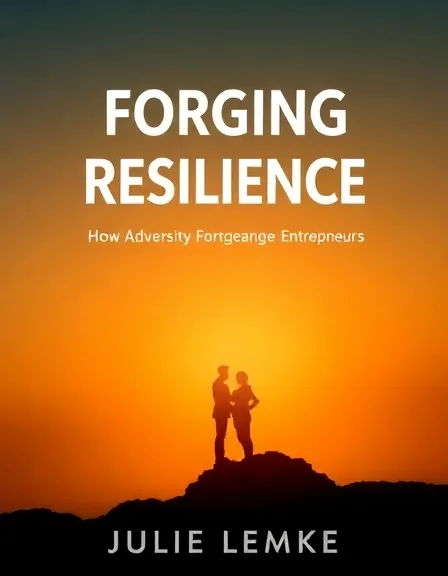Julie Lemke
Biography
Aspiring Author
Reviews Summary
4.0
Rating Breakdown
3 total ratings
Aspiring Author
4.0
Rating Breakdown
3 total ratings
This first chapter really drew me in with its relatable take on entrepreneurial struggles. Julie Lemke’s writing style feels very grounded and honest, making it easy to connect with the ideas. The way she frames adversity as a foundational part of building something new is quite powerful. I especially appreciated the acknowledgement of the psychological toll these challenges can take. The chapter does a great job of setting up the importance of resilience without feeling preachy. It made me curious about the specific strategies she'll offer in later chapters. I'm definitely interested in reading the rest of this book. Can't wait to see where this story goes. This is a promising start that makes me want to explore more. It feels like a valuable perspective for anyone on a similar journey.
This first chapter really drew me in with its direct approach to entrepreneurship's tough side. Lemke clearly lays out the premise that challenges are foundational, which felt very authentic. The writing style is clear and analytical, making complex ideas accessible. The chapter effectively establishes that adversity isn't a deviation but a core element of the journey. I'm definitely interested in reading the rest to see how these concepts are applied. The value proposition for the full book is strong, promising actionable strategies. The opening sets up an intriguing premise for understanding entrepreneurial resilience. I’m curious to see how the author will guide readers through managing the psychological impacts of setbacks. This preview suggests a practical and insightful guide that I’m keen to explore further. It feels like a solid foundation for a book that could offer significant support. 4.0/5
This first chapter really drew me in with its honest portrayal of entrepreneurship. Julie Lemke's perspective on adversity as a foundational element felt incredibly insightful and grounded. The writing style is accessible and keeps you engaged throughout the discussion. I appreciated how the chapter demystified the difficulties inherent in starting a venture. I'm definitely interested in reading the rest of "Forging Resilience" to explore more actionable strategies. The way challenges are framed as learning opportunities is a powerful takeaway from this initial read. This chapter sets up an intriguing premise for the entire book. I'm curious to see how these concepts are further developed.
